“Melissa, we just wanted to let you know that if you ever wanted a nose job, your mother and I would pay for it,” my dad said. For the record, I’m Jewish, but between my god-awful acne and four-year-long relationship with a full set of braces, I had never considered my nose to be a problem. I did, and still do, love my nose. It’s a bit on the bigger side, but I like to think that its angularity gives me character, and is even — dare I say — kind of cute. Revelist/Melissa Stanger Plastic surgery has never been something I’ve ever wanted, or felt I needed. Usually fluctuating between a size 0 and 2, I’m also not someone that society would look at and say, Oh yes, she could definitely use [fill-in-the-blank] procedure. But for some reason, society looks at other women — bigger women — and makes those kinds of calls for them. Someone get that girl some lipo; someone give her a tummy tuck; someone put her under the knife. Let me clarify by saying that I’m not anti-cosmetic surgery at all; I think every person should decide for themselves what they want to do (or not do) in order to be happy with the way that they look. But I did want to prove that no matter what you look like, whether you’re a size 2 or a size 22, someone somewhere will find fault with your body. So, in a fit of masochism, I decided to have the experts — a couple of plastic surgeons — look me over and tell me what was “wrong” with my body. “Ah,” I said, trying to hide my disappointment. “They almost always come for a specific problem,” Dr. Zuckerman said. “It’s almost never, ‘hey, what’s wrong with me, come and fix me.’” That’s just not the way he does it, he said, and neither do most plastic surgeons. He won’t tell patients what’s “wrong” with their bodies; it all depends on what they want to fix. “People usually have a specific concern about a specific part of their body… and are looking to make a specific change.” “If I get cornered at a bar by one of my wife’s friends like, ’look at my face, what would you to do me?’ I mean, if they really want to know, I can look at somebody’s face,” he said. “In terms of the rest of you,” he continued, “I mean, there’s not much; you could always fill out these cheeks a little bit — you’re a little flat in the mid-face here, but not in an unattractive way. That’s the way the face ages, over time — it all falls down.” “What about my nose?” I asked him, as I told him about my parents’ offer from when I was a teenager. Dr. Zuckerman had me turn to the side. “Could I do something about your nose? Yeah, sure,” he said, but assured me that my nose was perfectly “anatomically normal,” and doesn’t need fixing. “It’s just a part of their routine, how they keep themselves looking the way they want to look; it’s part of what makes them happy about their appearance,” he said, but noted that he’s not the one who can make his patients feel good about their bodies. “It’s not up for me to determine; it’s up to you what makes you feel good about yourself. I can help change the way you look… but it’s up to you before or after surgery to feel good about yourself.” “When my patients come in, they’re coming in for a specific thing — or sometimes they’ll come in and say, ‘Dr. Shafer, what should I get done?’” the plastic surgeon and RealSelf contributor said. “And then we kind of go through what bothers them [about their appearance], and then I’ll go through and talk to them about things that can be done.” What he would never do, he said, is look a patient over and say, “Oh, that’s got to go.” “So then if I were to come in as a patient and point out my ‘problem areas,’ what would you suggest I do to fix them?” I asked. “One thing that people don’t appreciate is this area right here, there’s fat right here,” he said, pointing to my sides. “You’re a little square right in here, and so by doing liposuction here and here, we can give you more of an hourglass shape, but it really depends if that’s what you’re looking for.” “And then a lot of people like to see their hip bones right here, and so just by liposuctioning a little bit, you’ll get some contour there,” Dr. Shafer continued. “And then the other thing people don’t think of is the lower back. So by scooping this out a little bit it’ll give you more of this nice shape around the body, and it also enhances the butt. And then you can take all that fat that we just took out, put it in the butt, and you just get a little more. But for someone like you, you would be a good liposuction candidate, but you wouldn’t be a good tummy tuck candidate.” I’m sure there are even some women out there with bodies like mine or noses like mine who would like nothing better than a little lipo, a couple of implants, or a quick rhinoplasty — or who have even been told, by parents or former partners, that this is something they should consider. There’s always going to be someone out there who finds flaws in the way you look. But whether or not you should change it? Whether or not you decide to love yourself regardless? That’s not something that comes from an operating room.

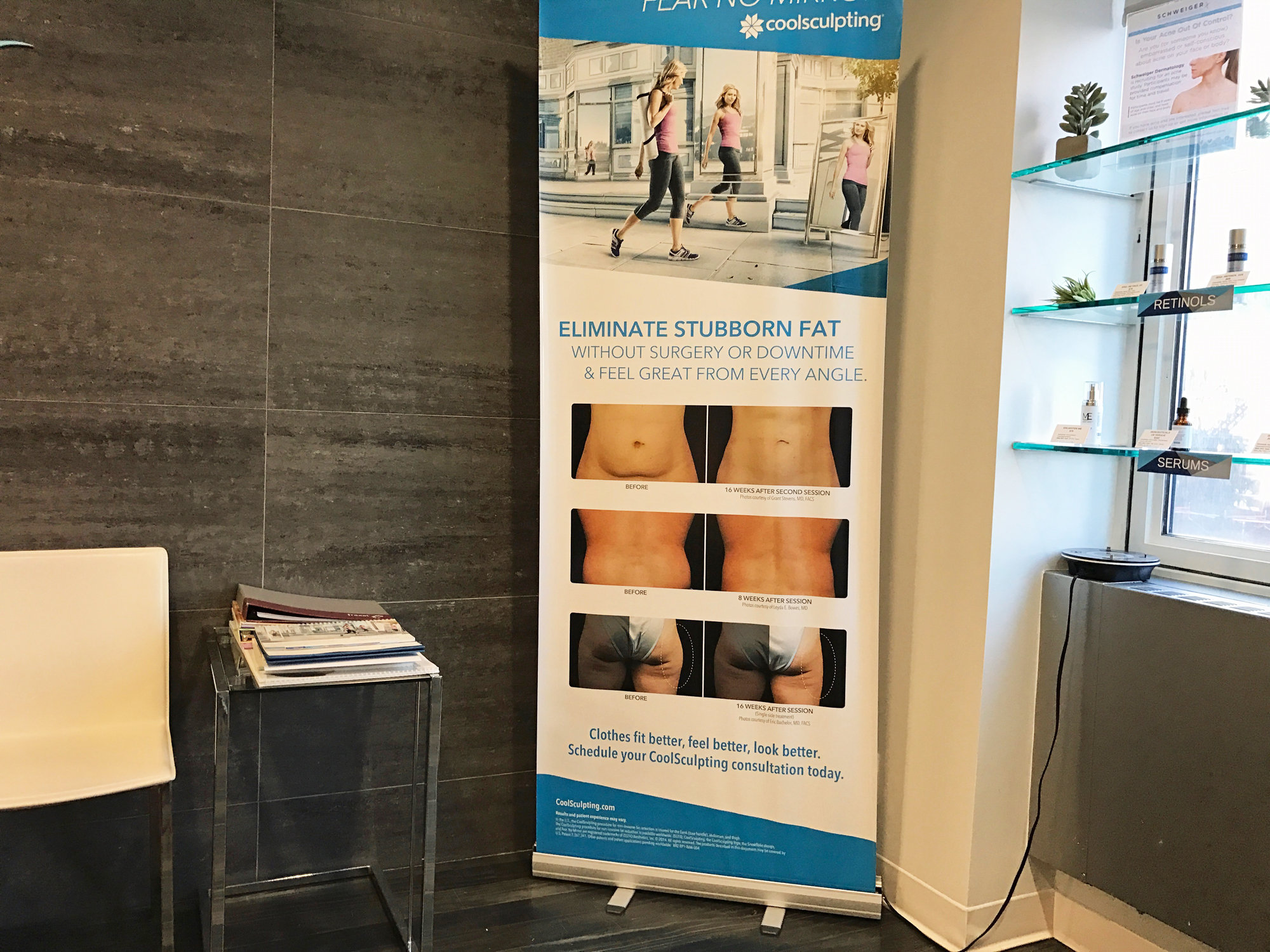
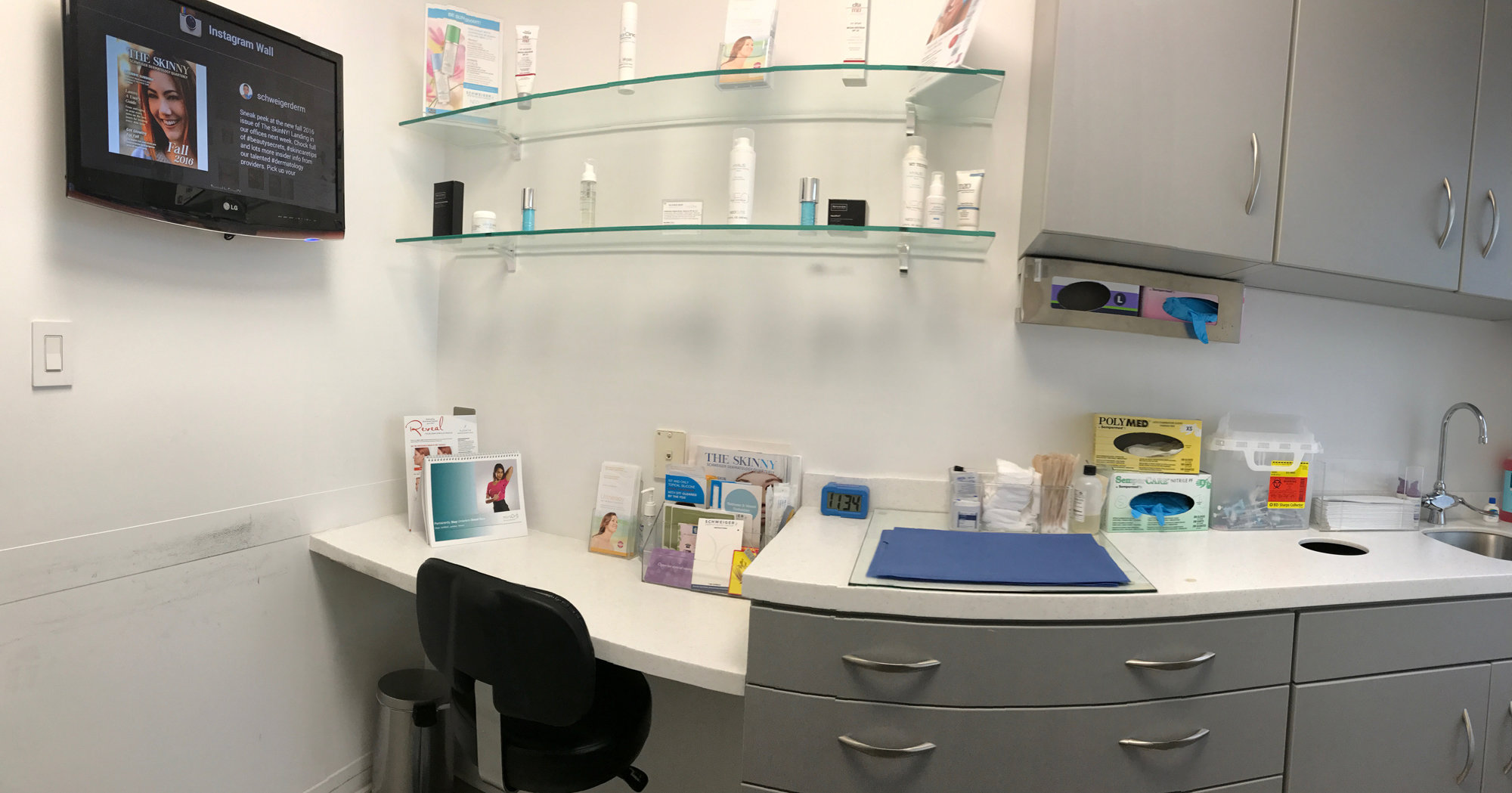
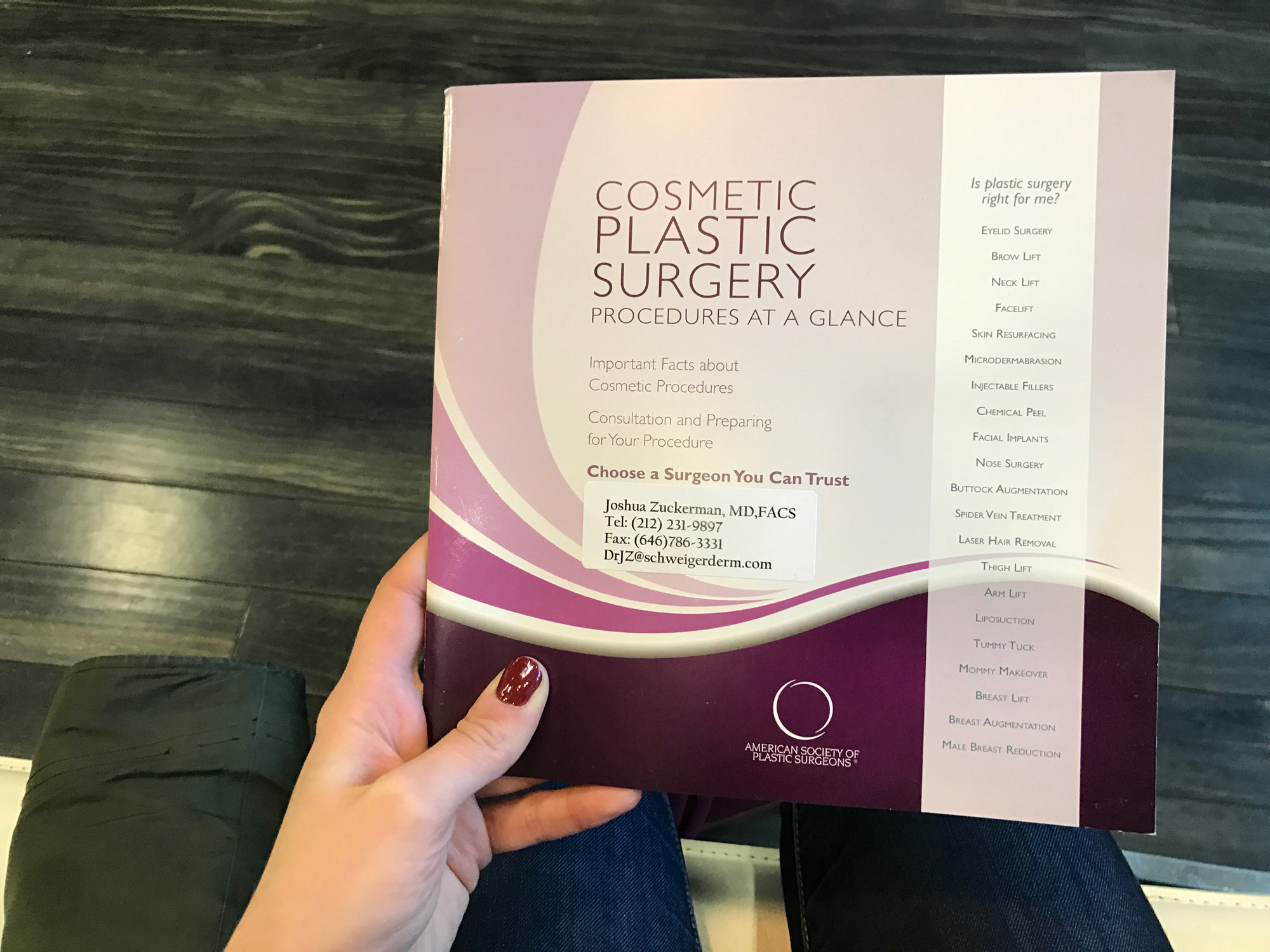
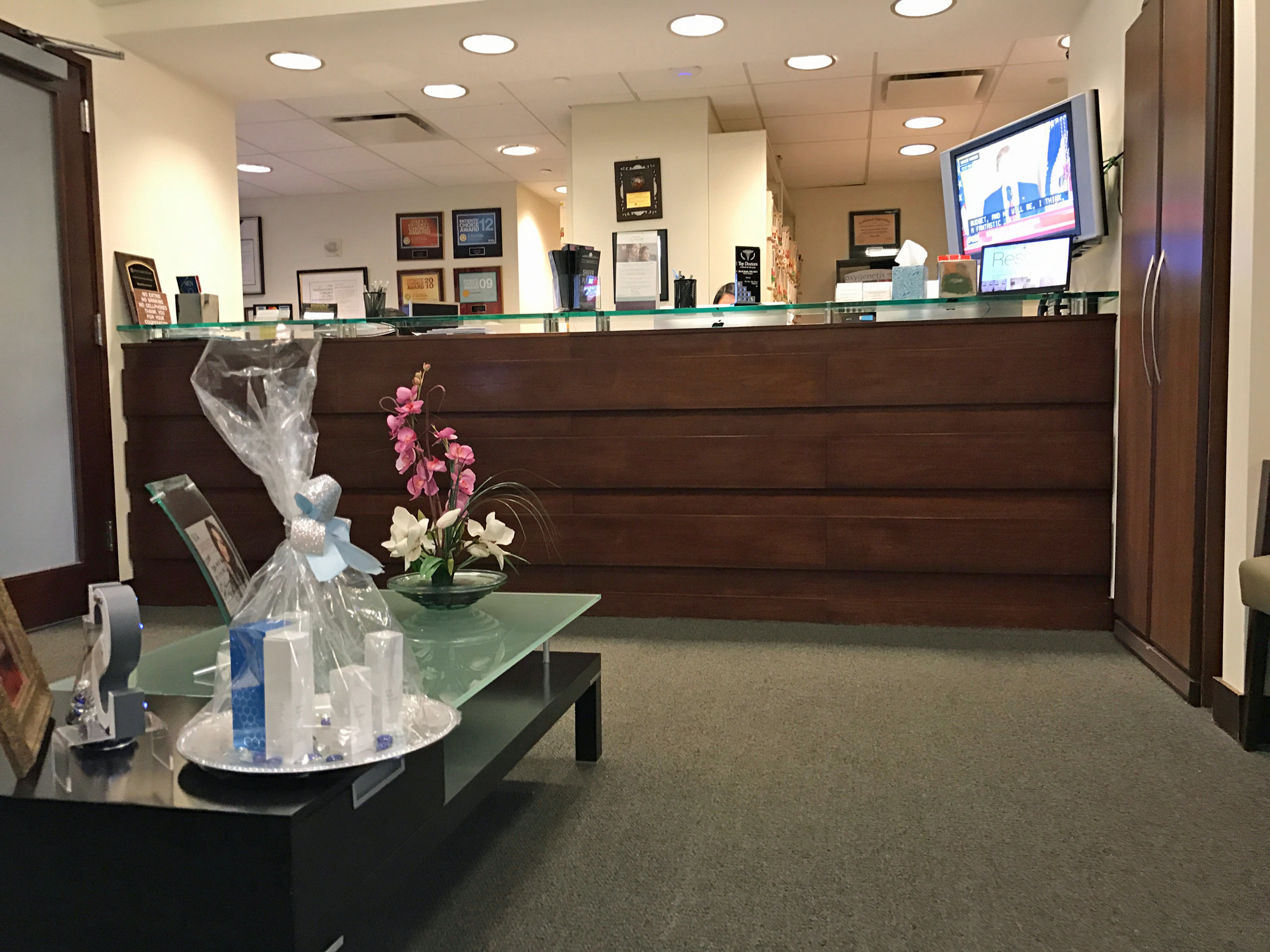

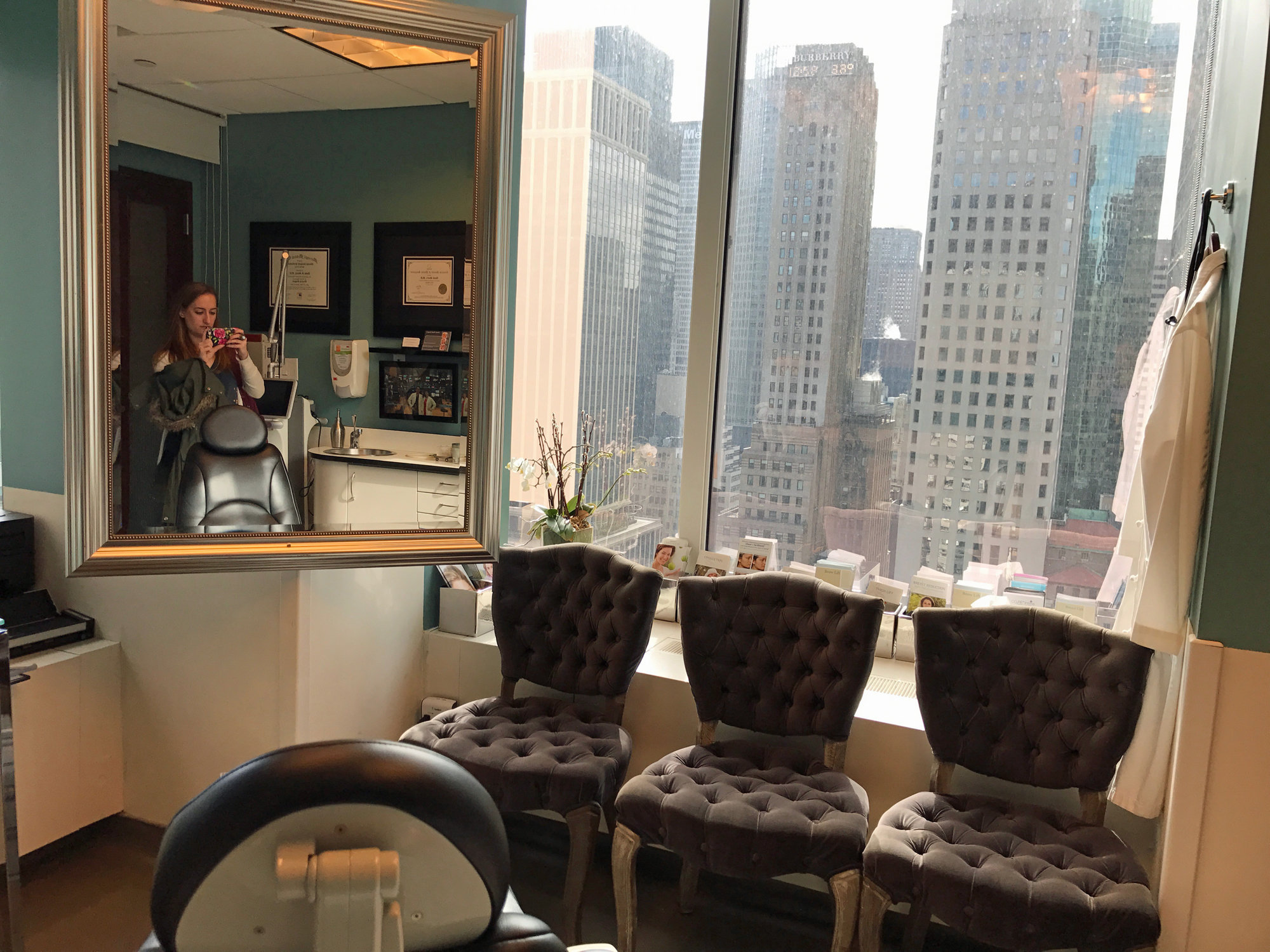
![]()
title: “I Had A Consult With A Plastic Surgeon To Prove A Point” ShowToc: true date: “2024-09-25” author: “Jack Dick”
“Melissa, we just wanted to let you know that if you ever wanted a nose job, your mother and I would pay for it,” my dad said. For the record, I’m Jewish, but between my god-awful acne and four-year-long relationship with a full set of braces, I had never considered my nose to be a problem. I did, and still do, love my nose. It’s a bit on the bigger side, but I like to think that its angularity gives me character, and is even — dare I say — kind of cute. Revelist/Melissa Stanger Plastic surgery has never been something I’ve ever wanted, or felt I needed. Usually fluctuating between a size 0 and 2, I’m also not someone that society would look at and say, Oh yes, she could definitely use [fill-in-the-blank] procedure. But for some reason, society looks at other women — bigger women — and makes those kinds of calls for them. Someone get that girl some lipo; someone give her a tummy tuck; someone put her under the knife. Let me clarify by saying that I’m not anti-cosmetic surgery at all; I think every person should decide for themselves what they want to do (or not do) in order to be happy with the way that they look. But I did want to prove that no matter what you look like, whether you’re a size 2 or a size 22, someone somewhere will find fault with your body. So, in a fit of masochism, I decided to have the experts — a couple of plastic surgeons — look me over and tell me what was “wrong” with my body. “Ah,” I said, trying to hide my disappointment. “They almost always come for a specific problem,” Dr. Zuckerman said. “It’s almost never, ‘hey, what’s wrong with me, come and fix me.’” That’s just not the way he does it, he said, and neither do most plastic surgeons. He won’t tell patients what’s “wrong” with their bodies; it all depends on what they want to fix. “People usually have a specific concern about a specific part of their body… and are looking to make a specific change.” “If I get cornered at a bar by one of my wife’s friends like, ’look at my face, what would you to do me?’ I mean, if they really want to know, I can look at somebody’s face,” he said. “In terms of the rest of you,” he continued, “I mean, there’s not much; you could always fill out these cheeks a little bit — you’re a little flat in the mid-face here, but not in an unattractive way. That’s the way the face ages, over time — it all falls down.” “What about my nose?” I asked him, as I told him about my parents’ offer from when I was a teenager. Dr. Zuckerman had me turn to the side. “Could I do something about your nose? Yeah, sure,” he said, but assured me that my nose was perfectly “anatomically normal,” and doesn’t need fixing. “It’s just a part of their routine, how they keep themselves looking the way they want to look; it’s part of what makes them happy about their appearance,” he said, but noted that he’s not the one who can make his patients feel good about their bodies. “It’s not up for me to determine; it’s up to you what makes you feel good about yourself. I can help change the way you look… but it’s up to you before or after surgery to feel good about yourself.” “When my patients come in, they’re coming in for a specific thing — or sometimes they’ll come in and say, ‘Dr. Shafer, what should I get done?’” the plastic surgeon and RealSelf contributor said. “And then we kind of go through what bothers them [about their appearance], and then I’ll go through and talk to them about things that can be done.” What he would never do, he said, is look a patient over and say, “Oh, that’s got to go.” “So then if I were to come in as a patient and point out my ‘problem areas,’ what would you suggest I do to fix them?” I asked. “One thing that people don’t appreciate is this area right here, there’s fat right here,” he said, pointing to my sides. “You’re a little square right in here, and so by doing liposuction here and here, we can give you more of an hourglass shape, but it really depends if that’s what you’re looking for.” “And then a lot of people like to see their hip bones right here, and so just by liposuctioning a little bit, you’ll get some contour there,” Dr. Shafer continued. “And then the other thing people don’t think of is the lower back. So by scooping this out a little bit it’ll give you more of this nice shape around the body, and it also enhances the butt. And then you can take all that fat that we just took out, put it in the butt, and you just get a little more. But for someone like you, you would be a good liposuction candidate, but you wouldn’t be a good tummy tuck candidate.” I’m sure there are even some women out there with bodies like mine or noses like mine who would like nothing better than a little lipo, a couple of implants, or a quick rhinoplasty — or who have even been told, by parents or former partners, that this is something they should consider. There’s always going to be someone out there who finds flaws in the way you look. But whether or not you should change it? Whether or not you decide to love yourself regardless? That’s not something that comes from an operating room.







![]()
title: “I Had A Consult With A Plastic Surgeon To Prove A Point” ShowToc: true date: “2024-10-13” author: “Virginia Hottel”
“Melissa, we just wanted to let you know that if you ever wanted a nose job, your mother and I would pay for it,” my dad said. For the record, I’m Jewish, but between my god-awful acne and four-year-long relationship with a full set of braces, I had never considered my nose to be a problem. I did, and still do, love my nose. It’s a bit on the bigger side, but I like to think that its angularity gives me character, and is even — dare I say — kind of cute. Revelist/Melissa Stanger Plastic surgery has never been something I’ve ever wanted, or felt I needed. Usually fluctuating between a size 0 and 2, I’m also not someone that society would look at and say, Oh yes, she could definitely use [fill-in-the-blank] procedure. But for some reason, society looks at other women — bigger women — and makes those kinds of calls for them. Someone get that girl some lipo; someone give her a tummy tuck; someone put her under the knife. Let me clarify by saying that I’m not anti-cosmetic surgery at all; I think every person should decide for themselves what they want to do (or not do) in order to be happy with the way that they look. But I did want to prove that no matter what you look like, whether you’re a size 2 or a size 22, someone somewhere will find fault with your body. So, in a fit of masochism, I decided to have the experts — a couple of plastic surgeons — look me over and tell me what was “wrong” with my body. “Ah,” I said, trying to hide my disappointment. “They almost always come for a specific problem,” Dr. Zuckerman said. “It’s almost never, ‘hey, what’s wrong with me, come and fix me.’” That’s just not the way he does it, he said, and neither do most plastic surgeons. He won’t tell patients what’s “wrong” with their bodies; it all depends on what they want to fix. “People usually have a specific concern about a specific part of their body… and are looking to make a specific change.” “If I get cornered at a bar by one of my wife’s friends like, ’look at my face, what would you to do me?’ I mean, if they really want to know, I can look at somebody’s face,” he said. “In terms of the rest of you,” he continued, “I mean, there’s not much; you could always fill out these cheeks a little bit — you’re a little flat in the mid-face here, but not in an unattractive way. That’s the way the face ages, over time — it all falls down.” “What about my nose?” I asked him, as I told him about my parents’ offer from when I was a teenager. Dr. Zuckerman had me turn to the side. “Could I do something about your nose? Yeah, sure,” he said, but assured me that my nose was perfectly “anatomically normal,” and doesn’t need fixing. “It’s just a part of their routine, how they keep themselves looking the way they want to look; it’s part of what makes them happy about their appearance,” he said, but noted that he’s not the one who can make his patients feel good about their bodies. “It’s not up for me to determine; it’s up to you what makes you feel good about yourself. I can help change the way you look… but it’s up to you before or after surgery to feel good about yourself.” “When my patients come in, they’re coming in for a specific thing — or sometimes they’ll come in and say, ‘Dr. Shafer, what should I get done?’” the plastic surgeon and RealSelf contributor said. “And then we kind of go through what bothers them [about their appearance], and then I’ll go through and talk to them about things that can be done.” What he would never do, he said, is look a patient over and say, “Oh, that’s got to go.” “So then if I were to come in as a patient and point out my ‘problem areas,’ what would you suggest I do to fix them?” I asked. “One thing that people don’t appreciate is this area right here, there’s fat right here,” he said, pointing to my sides. “You’re a little square right in here, and so by doing liposuction here and here, we can give you more of an hourglass shape, but it really depends if that’s what you’re looking for.” “And then a lot of people like to see their hip bones right here, and so just by liposuctioning a little bit, you’ll get some contour there,” Dr. Shafer continued. “And then the other thing people don’t think of is the lower back. So by scooping this out a little bit it’ll give you more of this nice shape around the body, and it also enhances the butt. And then you can take all that fat that we just took out, put it in the butt, and you just get a little more. But for someone like you, you would be a good liposuction candidate, but you wouldn’t be a good tummy tuck candidate.” I’m sure there are even some women out there with bodies like mine or noses like mine who would like nothing better than a little lipo, a couple of implants, or a quick rhinoplasty — or who have even been told, by parents or former partners, that this is something they should consider. There’s always going to be someone out there who finds flaws in the way you look. But whether or not you should change it? Whether or not you decide to love yourself regardless? That’s not something that comes from an operating room.







![]()